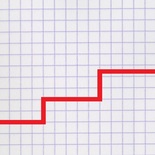
Even in a free market that perfectly respected property rights, some people would be poor through no fault of their own. For a variety of reasons, this is even more true of our mixed economy. There is also the question of how children could possibly be said to deserve their initial lot in life. These considerations argue in favour of some kind of aid to the undeservedly poor. But are minimum wage laws the best tool for the job?
The title of a recent Washington Post article, "Economists agree: Raising the minimum wage reduces poverty," seems to suggest that they are at least a good tool for the job. Specifically, the article cites research showing that "raising the minimum wage 10 percent (say from $7.25 to near $8) would reduce the number of people living in poverty 2.4 percent." How can economists agree on this and yet also agree (79% of them) that a minimum wage "increases unemployment among young and unskilled workers"?
As a matter of fact, there is no reason why both cannot be strictly true. Minimum wage laws clearly help certain people by forcing their employers to pay them a higher wage than they otherwise would, and it may help some of them enough to lift them above the poverty line, thus technically reducing poverty. But it also hurts certain other people who are priced out of the labour market, typically the young who lack the skills to be worth the higher wage. Employers therefore choose to let them go or not to hire them in the first place. This raises unemployment, but it does not raise the number of poor people because those who are hurt are already poor. They simply go from being working poor to being unemployed poor. Hardly seems like an efficient way of reducing poverty.
Even ignoring the people harmed by the minimum wage—not that you should—these laws are a poorly targeted way of helping the poor. As Tyler Cowen points out, only about 10% of workers who would gain from federal minimum wage hikes in the US live in poor households. How can this be? Well, for one thing, about two thirds of those who would gain are "second or third earners living in households with incomes three times the poverty line." By all means, let's help the poor improve their lot, but let's at least be smart about how we do it.
As a matter of fact, there is no reason why both cannot be strictly true. Minimum wage laws clearly help certain people by forcing their employers to pay them a higher wage than they otherwise would, and it may help some of them enough to lift them above the poverty line, thus technically reducing poverty. But it also hurts certain other people who are priced out of the labour market, typically the young who lack the skills to be worth the higher wage. Employers therefore choose to let them go or not to hire them in the first place. This raises unemployment, but it does not raise the number of poor people because those who are hurt are already poor. They simply go from being working poor to being unemployed poor. Hardly seems like an efficient way of reducing poverty.
Even ignoring the people harmed by the minimum wage—not that you should—these laws are a poorly targeted way of helping the poor. As Tyler Cowen points out, only about 10% of workers who would gain from federal minimum wage hikes in the US live in poor households. How can this be? Well, for one thing, about two thirds of those who would gain are "second or third earners living in households with incomes three times the poverty line." By all means, let's help the poor improve their lot, but let's at least be smart about how we do it.